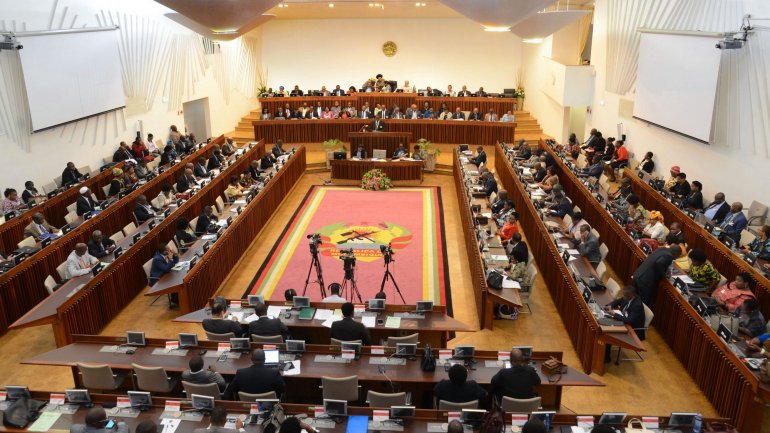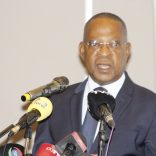Mozambique: Chapo dismisses Ambassador to Cuba
Mozambique elections: Frelimo wins more than two-thirds majority in parliament – official

File photo: Lusa
The Mozambican Liberation Front (Frelimo), which has ruled Mozambique since independence, has strengthened its presence in parliament and will fill more than two thirds of seats, according to the official results of the October 15 elections released yesterday.
Frelimo saw 184 out of the 250 deputies elected, or 73.6% of seats, with 60 (24%) being won by the Mozambican National Resistance (Renamo) and six seats (2.4%) by the Mozambique Democratic Movement (MDM), the National Election Commission (CNE) announced.
Frelimo has seen 40 more of its candidates win seats than five years ago, while Renamo loses 29 seats and the MDM 11.
The Mozambican Constitution stipulates that a two-thirds majority of the parliamentary vote is required to approve changes to the Constitution, to pass matters pertaining to the opposition statute, to elect the Ombudsman, to allow criminal prosecution of the President of the Republic or to stop the President vetoing re-examined laws.
The announcement of the results was made by the CNE at an official ceremony in which Abdul Carimo, the president of the body, read the results charts for each constituency for each of the presidential, legislative and provincial votes.
Mozambican president and Frelimo candidate Filipe Nyusi was re-elected for a second term with a first round vote of 73%.
In second place was Ossufo Momade, a candidate of the main opposition party Renamo, with 21.88%, and in third place Daviz Simango, leader of the Democratic Movement of Mozambique (MDM), with 4.38%.
Mario Albino, candidate for the United Movement for Integral Salvation (AMUSI), obtained 0.73%.
Abstentions were 49.26%, the CNE announced.
Frelimo has also managed to win absolute majorities in all provincial assemblies, where for the first time the governor is elected instead of being appointed by the government.
In 2014, Renamo succeeded in securing majorities in three of the country’s 10 provincial assemblies: Zambezia, Tete and Sofala.
The results were not accepted by Renamo and MDM, the opposition parties in parliament, who allege widespread fraud.
Both political forces announced through their main representative bodies several days ago that they disapproved of the way the electoral process had proceeded, and their representatives in the CNE, as well as some members of civil society, voted against the final tabulation.
The results were approved with nine votes in favour and eight against at the CNE Friday meeting and will now be sent for validation by the Constitutional Council.
The date of investiture of the candidates elected to members of the Assembly of the Republic and members of the provincial assemblies must be declared within 15 days after the publication of the results of the tabulation, the official election calendar dictates.
The Constitutional Council is obliged to set a date for the inauguration of the new president no later than eight days after the investiture of the new parliament.












Leave a Reply
Be the First to Comment!
You must be logged in to post a comment.
You must be logged in to post a comment.